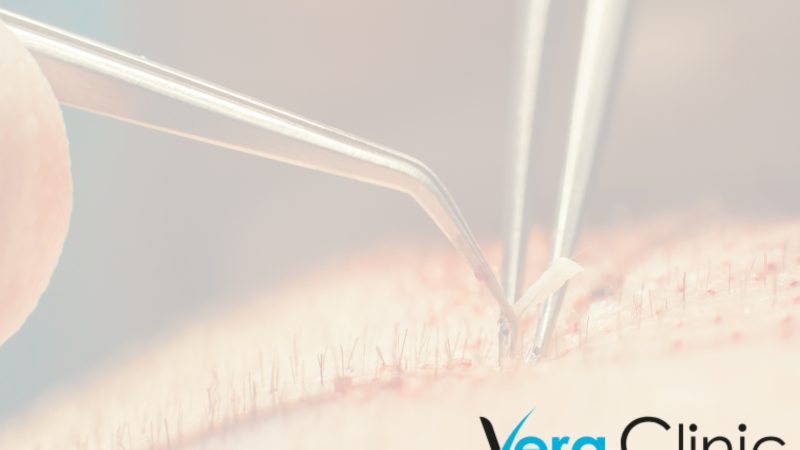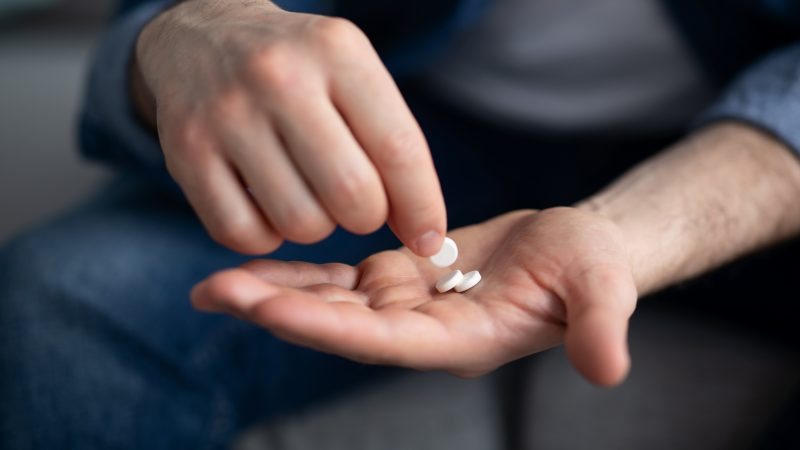Solving the Mystery of Impotence – A Look at the Latest Research and Treatments

Erectile dysfunction (ED) affects around one out of every 10 men. It’s usually related to aging, but can also be brought on by medical procedures and medications you can also check out farmaciaspain24.
Injection therapy is a widely-used treatment for erectile dysfunction (ED). This procedure uses medicines to relax blood vessels in the penis, allowing it to fill with blood.
1. Testosterone Replacement Therapy
Men as they age experience a decrease in their testosterone levels. Low levels can lead to muscle loss, depression, and mood swings.
Testosterone replacement therapy can be beneficial, and it comes in various forms such as injections and implants.
These treatments are administered subcutaneously or intramuscularly into your muscle. The dose of testosterone you receive depends on your individual needs and which product you select.
Gels that you apply directly onto the body may also be available. These should be worn for several hours each day and then absorbed by your skin.
Additionally, you should regularly monitor your blood and hormone levels to guarantee the most effective treatment results. Your doctor may need to measure your prostate-specific antigen (PSA), a natural protein which, when present at high levels, has been linked to an increased risk of prostate cancer.
2. Exercise
One of the most effective ways to enhance your erection is through regular exercise. The key is finding a workout that meets both your needs and fitness level. Start out with low-impact activities such as walking or swimming, then gradually increase your activity levels week by week until you see results.
Make sure to warm up and cool down properly before beginning exercise. Doing so helps you avoid injuries while keeping your heart and lungs functioning at peak performance levels for extended periods. Plus, the great thing about exercising is that you can do so anywhere – as long as you don’t overexert yourself – and reap the benefits quickly. Studies and treatments suggest there may be ways to restore manhood without resorting to expensive medications.
3. Weight Loss
Losing weight can be done through several methods. Health professionals suggest cutting calories, exercising regularly, eating a nutritious diet and getting enough sleep each night.
Before embarking on any diet or lifestyle changes, it’s essential that you consult a medical professional first. Depending on the underlying issue, they may prescribe medications or suggest surgery as treatment options.
Men with erectile dysfunction can benefit from medications like sildenafil (brand name: Viagra), tadalafil (brand name: Cialis), and vardenafil (brand name: Levitra). These drugs are taken orally to improve blood flow to the penis and decrease stress, allowing you to enjoy enjoyable intercourse again. Treatment depends on the cause of your erectile dysfunction which may be psychological or due to disease; often a combination of drugs is prescribed by a doctor in such cases for maximum effects.
4. Dietary Modifications
Dietary modifications refer to any dietary adjustments that can improve or enhance someone’s health. They include dietary supplements, nutritionally rich foods and lifestyle modifications like weight loss or other health objectives. A low-calorie diet is one common example of this kind of dietary modification.
Some examples of dietary modifications for breastfed infants include eliminating cow’s milk from their diet or adding prebiotics to standard formula. Studies have suggested that either a low-allergen maternal diet or hypoallergenic milk formula (or both) may be the key to relieving colic in babies and toddlers. The best fortifications include providing plenty of micronutrients such as vitamins, minerals, phytochemicals found in fresh produce like fruit and vegetables plus whole grains; along with protein, fats, carbohydrates and water for optimal hydration.
5. Hormone Replacement Therapy
Hormone replacement therapy (HRT), also known as HRT, is a treatment designed to help women manage symptoms associated with menopause. This may include hot flashes, mood swings and depression.
Bioidentical hormones provide a safe and effective treatment for hormone imbalance. By using estrogen and progestin, this therapy helps restore your body’s natural hormonal equilibrium.
Women on HRT may benefit from taking hormone replacement therapy (HRT). Not only does it prevent osteoporosis and lower the risk of breast cancer and heart disease for women, but it can also provide them with a more rewarding life and increase energy levels.
Before prescribing hormone replacement therapy, we will thoroughly evaluate your health and make sure this treatment is suitable for you. Contact our Lewisville, TX office today to book an initial consultation!
6. Physical Therapy
Physical therapy is a type of healthcare that utilizes exercises and other techniques to help you move and function better. It can be used to address many health conditions, including erectile dysfunction.
Physical therapists (PTs) are knowledgeable and experienced in evaluating your condition and creating a treatment plan to promote better health. They may perform hands-on treatments or instruct on specific exercises.
Physical therapists also collaborate with you to address mental health issues related to your condition, such as stress and anxiety. It is essential that you feel comfortable sharing these worries with them so they can work towards improving things for you.
7. Psychotherapy
Psychotherapy is the process of exploring the unconscious mind, which can lead to improved feelings and behaviors. It helps people boost their self-esteem, develop effective coping mechanisms and reduce stress levels.
Studies have also demonstrated that people who receive therapy experience fewer sick days, less disability, fewer medical issues and greater job satisfaction.
Psychotherapy comes in many forms, such as individual, group, couples and interpersonal. When selecting the type of psychotherapy that’s right for you, there are several factors to consider.
Relationship with your therapist is paramount for successful therapy sessions. It requires honesty and openness about thoughts and feelings, so the therapist can better understand you and your problems. Furthermore, following the agreed-upon treatment plan and setting goals for yourself are essential elements for a successful journey.
8. Antidepressants
Common antidepressants include selective serotonin reuptake inhibitors (SSRIs), such as fluoxetine (Prozac), paroxetine (Paxil), fluvoxamine (Luvox), and citalopram (Celexa). These medications increase levels of serotonin in the brain.
These drugs are prescribed to treat depression, anxiety disorders and other mental health conditions. They may also assist with certain physical issues like managing chronic pain.
However, they have been linked to sexual side effects – especially erectile dysfunction in men. Therefore, it’s essential that you discuss the possibility of ED with your doctor prior to taking any antidepressant medication.
There are various methods to manage these effects, such as watchful waiting, dosage reductions, drug holidays, switching antidepressants and adding-on medications. No matter which route you take though it’s essential to monitor your sexual function before and during therapy so you can determine the most effective way to address these side effects.
9. Hormone Replacement Therapy
Hormones play an integral role in many fundamental bodily processes, such as digestion, growth, appetite, immune function, mood swings and libido. When your hormones are out of balance you may experience a range of unpleasant symptoms.
At Herrera Medical Group in Lewisville, TX, we offer hormone replacement therapy to help restore the natural balance in your body and alleviate symptoms associated with hormonal deficiencies that cause menopause. The safest form of HRT uses bioidentical hormones – identical to those produced by your own body – which mimic natural hormone levels.
Studies in the past have suggested that hormone replacement therapy (HRT) can lower women’s risks of heart disease and cancer while also protecting bone loss. However, today doctors are becoming increasingly wary about these potential dangers.
10. Dietary Modifications
A nutritious diet can be the key to living a long and healthy life. A balanced diet that includes plenty of fruits, vegetables, lean meats, and fish helps reduce your chances for developing cardiovascular disease while improving quality of life.
For the best dietary advice, speak to your physician about finding the right plan for you. There are various approaches to choose from – from dietary supplements to modified versions of your regular diet – but it’s important to weigh potential side effects before making any major lifestyle changes. Thankfully, most physicians can provide assistance here as well.
The most crucial lesson of all is this: if you want to be healthy and contented, take time to educate yourself on nutrition science.






